The latest Cognigy.AI update introduces support for the Model Context Protocol (MCP), unlocking next-level AI orchestration capabilities for enterprise users.
What is the Model Context Protocol (MCP)?
The Model Context Protocol (MCP) is a recently introduced open standard (originally pioneered by Anthropic) designed to streamline how AI assistants access external information and functionality. It provides a "universal, open protocol for connecting AI systems with data sources." At its core, MCP standardizes the communication between AI’s (models, Agents) and external systems – whether those are databases, knowledge bases, business applications, or other AI services. Think of MCP as an interpreter for AI tools: it allows different AI components to speak a common language, effortlessly exchanging context and commands regardless of their underlying platforms.
In simpler terms, MCP is like a USB-C port for AI applications – a standardized way to plug in external knowledge, tools, and even other AI models into your conversational AI workflows.
Cognigy.AI + MCP: Bringing Open AI Orchestration to the Enterprise
Cognigy.AI’s support for the Model Context Protocol marks another step toward open, extensible AI. Cognigy has always championed a model-agnostic, integration-friendly approach. With MCP, we are doubling down on that philosophy by adopting an industry-standard method for tool and data integration.
What does MCP support in Cognigy.AI look like?
In practical terms, Cognigy.AI can now act as an MCP client, meaning your AI Agents can directly interface with any MCP-compliant server. Within the Cognigy Flow Editor, you can create an AI Agent and configure it to connect with selected MCP servers. The MCP Node is presented as an alternative to the Tool Nodes. Once connected, the Agent automatically gains access to the tools provided by those servers, with no custom code needed.
From a setup standpoint, connecting an MCP server in Cognigy.AI is straightforward: Flow builders can enter the endpoint of an MCP server, and Cognigy handles the rest. There’s no need to define API calls or data parsing logic manually. As the MCP standard ensures, if the external tool’s capabilities change, Cognigy will automatically receive that updated schema through MCP. Cognigy also allows granular control over the tools provided by the MCP service: A white- and blacklist filtering can restrict the use of tools in any MCP Node.
Behind the scenes, MCP integration is powered by the Cognigy Nexus Engine, which enables AI Agents to dynamically select tools, reason through user input, and interact with external systems in real time. By combining the MCP standard with Nexus Engine capabilities - like automated tool orchestration, context management, and reasoning - Cognigy Agents can use the right tool at the right time, without requiring manual flow configuration.

How Does MCP Work?
Under the hood, the Model Context Protocol follows a flexible client–server architecture. AI applications (like a Cognigy.AI Agent) act as MCP clients, connecting to one or more MCP servers that expose specific data or capabilities. Each MCP server is essentially a lightweight connector or tool that the AI can use use. Crucially, every server presents its functions and data in a self-describing format that any MCP-compatible client can understand. This means when an AI agent connects to a new MCP server, it can automatically discover what actions ("tools") the server offers, what inputs they require, and what outputs they produce – almost like an app automatically recognizing a newly plugged-in device.

Tools are executable actions or functions that the AI can invoke (with appropriate permissions). This could range from sending an email to running a calculation, to calling an external API. These tools come with semantic descriptions and safety checks, ensuring AI actions are powerful yet governed. However, the Model Context Protocol is an emerging standard and continues to evolve. Areas such as authentication, permission handling, and tooling semantics are actively being refined by the community. Cognigy will monitor these developments closely and support upcoming improvements as they are formalized in future releases.
Overall, MCP creates a two-way, real-time communication channel between the AI Agent and external systems. The AI Agent can retrieve information and trigger operations (execute tools) through this channel as if they were native capabilities.
Why MCP Matters for AI Orchestration
From an enterprise perspective, MCP is impactful because it tackles the integration bottleneck in AI projects. Not only does it allow you to connect to external MCP services, instead of writing bespoke code for every backend system or cloud API your AI Agent needs to access, you can build or leverage an MCP connector once and use it across any AI workflow. This yields several concrete benefits:
- Seamless Multi-Tool Workflows: With MCP, AI Agents can dynamically tap into multiple knowledge bases and tools during a single interaction, all while preserving the conversational context.
- Modularity and Flexibility: Each MCP server is like a modular plugin for a specific set of capabilities (be it a data source or specialized actions). Developers can add, remove, or update these modules without touching the AI Agents, leveraging these services. This modularity is invaluable in enterprise environments: if you migrate from one CRM to another, you can simply switch out the MCP connector for that CRM, and your AI Agents continue to function. Likewise, you can start small – enable a few tools – and gradually expand your AI’s capabilities by plugging in new MCP integrations over time, all while maintaining a stable overall architecture.
- Contextual and Real-Time: MCP enables tools to become available dynamically, only when relevant and allowed. This selective exposure is governed both server-side and within Cognigy.AI, using built-in white- and blacklisting features. The result: your AI Agents only see the tools they’re meant to use, when they’re meant to use them. This ensures a secure, context-aware experience that keeps workflows efficient and governed.
Benefits for Conversation Designers, Low-Code Developers, and IT Leaders
For Cognigy users and stakeholders, adding MCP support isn’t just a technical novelty. It directly translates into practical benefits for different roles involved in delivering AI solutions:
- Conversation Designers: You can add an MCP Node into a Flow and immediately use live data in the conversation. This shortens the iteration cycle and enables low-code developers to integrate external systems into Cognigy.AI with just configuration.
- Enterprise Architects / Technical Decision-Makers: MCP support aligns with an open standards strategy, enabling future-proofing and agility. You tap into a broad and growing industry standard. This makes it easier to adopt new technologies.
- Business Stakeholders: AI with MCP can accelerate time-to-market for new AI capabilities. This agility translates to faster ROI on AI projects. The bottom line: more powerful AI experiences for customers and employees, delivered faster and maintained with less cost.
Pioneering an Open, Connected AI Future
As AI ecosystems continue to evolve, agility and openness are more important than ever. By adopting the Model Context Protocol, we’re reinforcing our commitment to interoperability and future-ready architecture. We’ll continue to invest in capabilities that give our customers flexibility and speed, enabling them to build, scale, and adapt their AI solutions with confidence.
To learn more about Cognigy's MCP integration, visit our documentation.

.png?width=60&height=60&name=AI%20Copilot%20logo%20(mega%20menu).png)



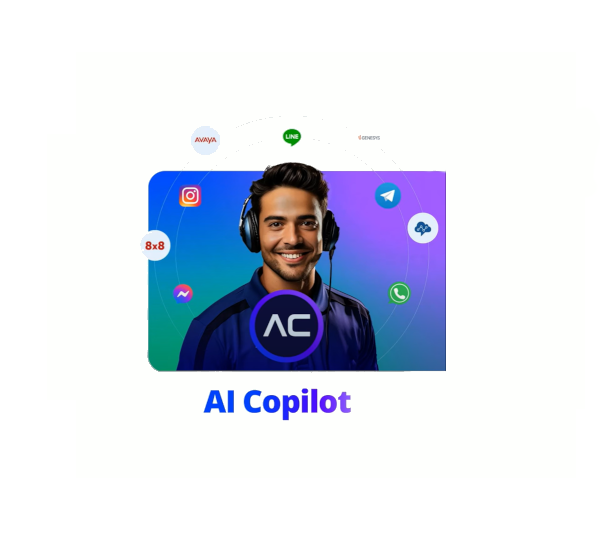
.png?width=600&height=600&name=Knowledge%20AI%20Feature%20image%20(2).png)
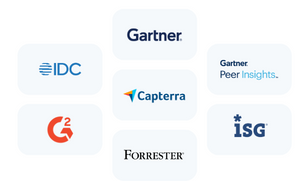





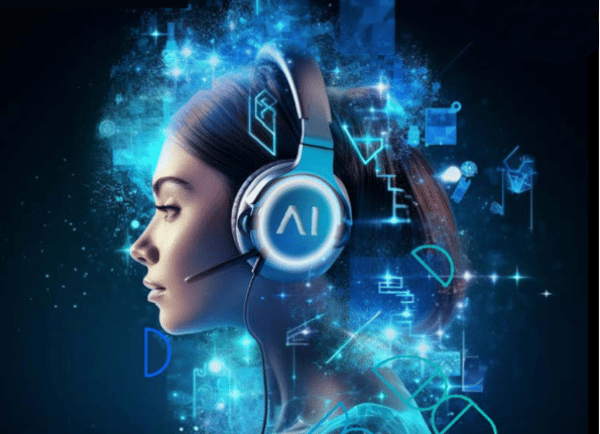
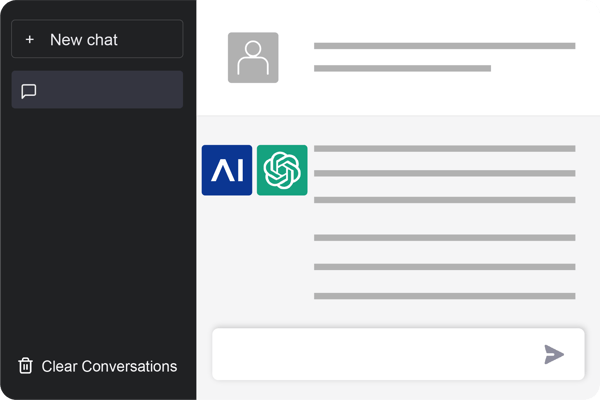

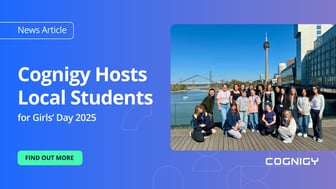

.png?width=1080&height=1080&name=MCP%20Blog%20-%20Hero%20(3).png)



